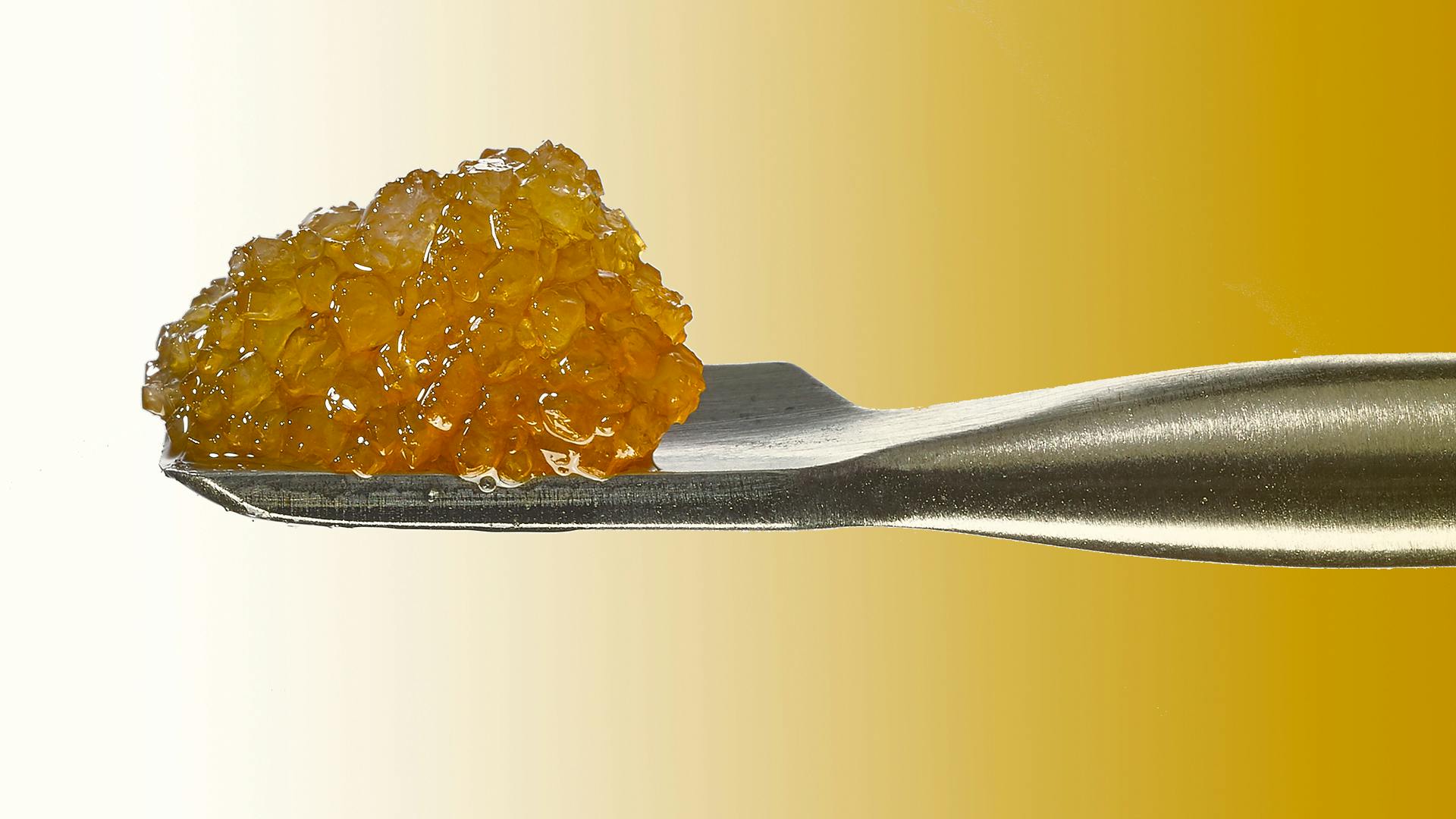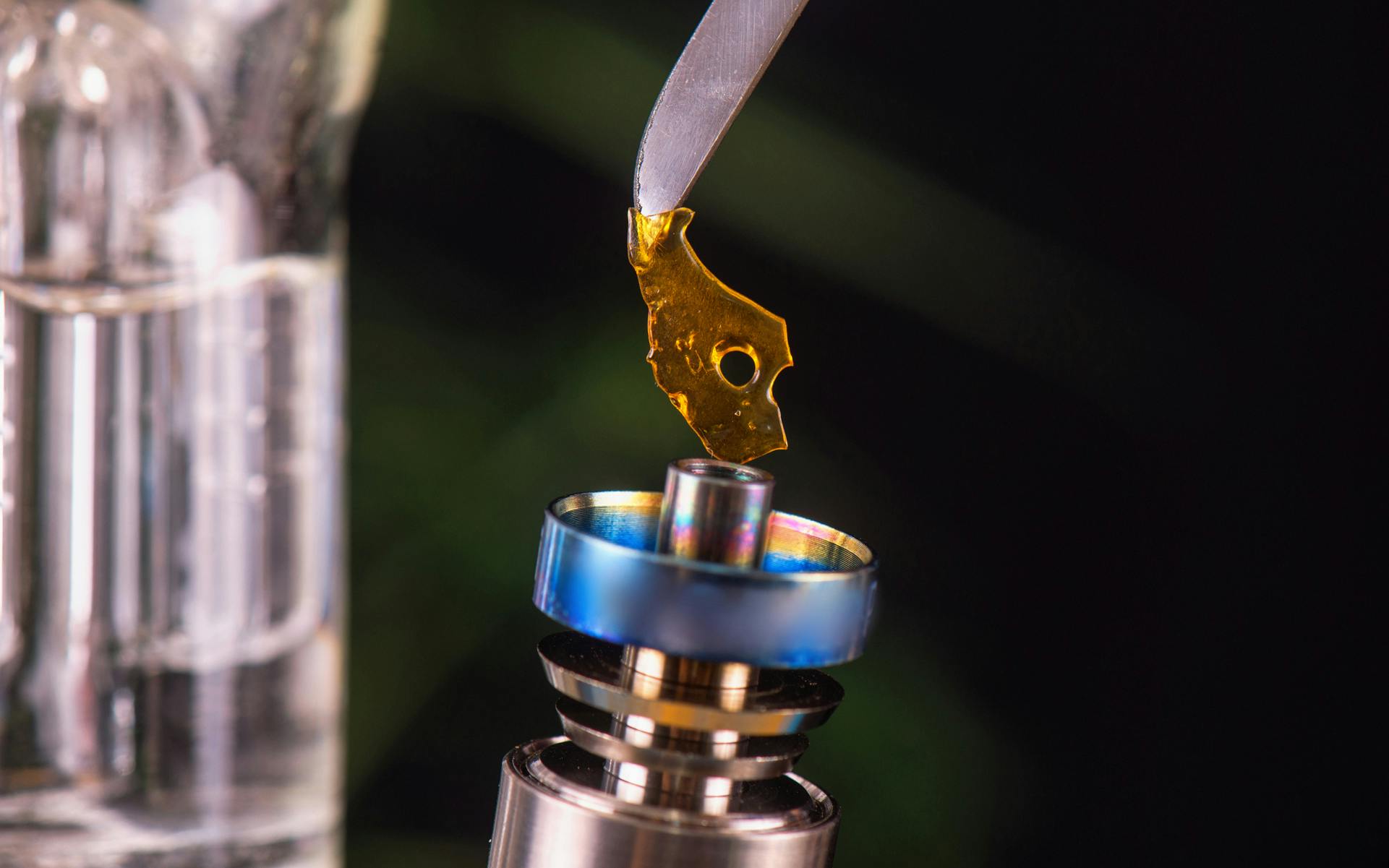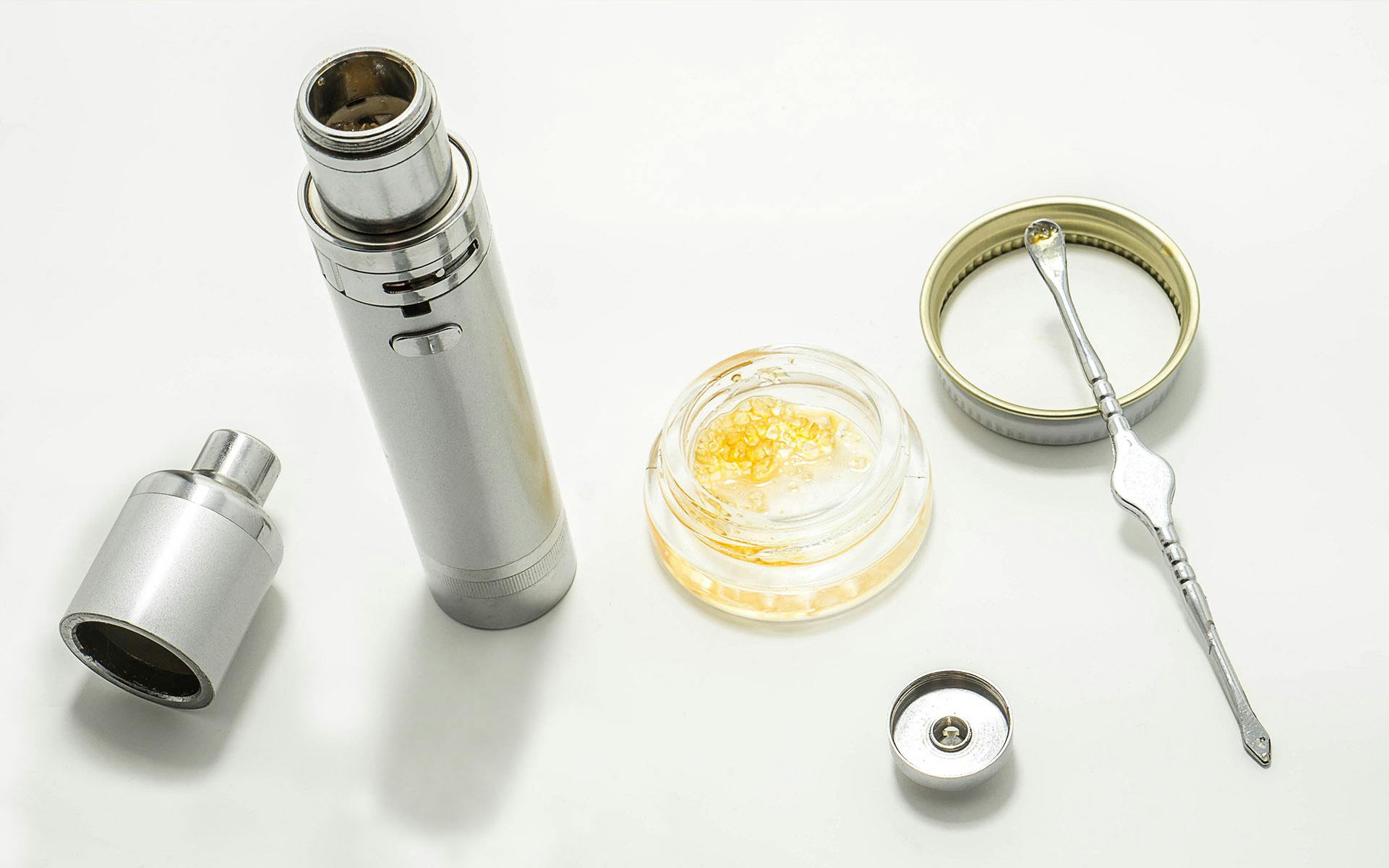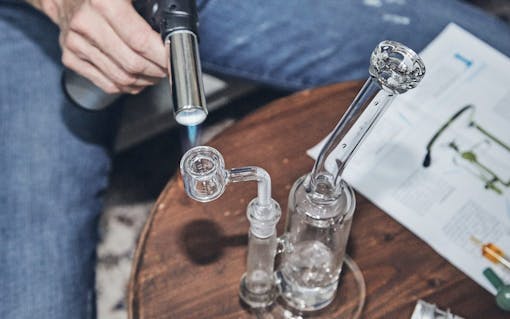
What temperature should you be dabbing at? Some dabbers prefer hot dabs with big clouds of vapor while others live by the low-temp dabber’s credo: “You got to waste it to taste it.”
Hot dabs can give immediate and pronounced effects that only take a few minutes to settle in. Low-temp dabs, on the other hand, tend to deliver a lighter, more gradual rise into euphoric effects, and are more flavorful.
We’ll talk about a variety of temperatures and methods to get the best dabs, and you’ll probably want to experiment to see which you prefer.
The role of terpenes in dab temperature
People dab because of their strong flavors and smells, which come from terpenes, the flavor compounds of cannabis. Flavorful dabs are said to be “terpy,” and a great concentrate will carry the flavor and aroma of the original plant through the extraction process and into the final product when you dab.
Terpenes are delicate and can scorch easily, so if a dab is too hot it can lead to a burnt taste, and possibly ruin the dab. Knowing the right temperatures that certain terpenes vaporize at will ensure you get great, flavorful dabs every time.
What is the best dab temperature?
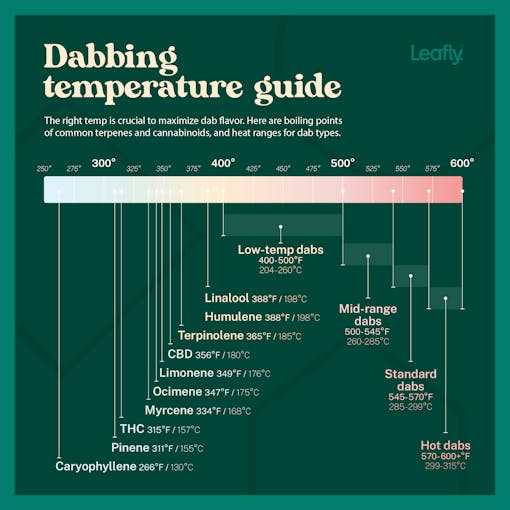
The graphic above shows the vaporization points of essential terpenes and cannabinoids. Here are some different temperature ranges to fine tune the effectiveness of each dab you take.
Shop highly rated dispensaries near you
Showing you dispensaries nearStandard dabbing range: 545-570°F
545-570°F is a good overall range for most dabs, especially live resin, sugar resin, shatter, crumble, and rosin. Dabbing these types of concentrates in this range will completely vaporize the dab, capturing its flavor, potency, and essence without scorching or combusting any of the heat-sensitive terpenes.
Many e-nails give you a temperature reading for the heater coil, so account for some slight variation of heat transfer from the coil to the dabbing surface when using them. Some, such as the MiniNail, have factory-calibrated controllers to account for this loss of heat, and their temperature readout gives you more precise control over your dabbing experience.
Low-temp dabs: 400-500°F
Low-temps dabs are for people looking for the most flavorful experience. With reduced temperatures and a cooler nail surface, you’re able to preserve the flavors and terpenes in your dabs better.
Concentrates can melt at as little as 350°F, and from the graph above you can see that most terpenes and cannabinoids have a boiling point under 400°F, but low-temp dabs need to be a little higher than that and are generally in the 400-450°F range. For example, the Puffco Peak’s lowest setting is 450°F.
Know that low-temp dabs can be wasteful—you’ll likely get a small pool of oil in your nail that won’t completely vaporize, which is where the phrase “You got to waste it to taste it” comes from. Some dabbers are OK with this, but others will tell you it’s a waste of good concentrate.
Mid-range dabs: 500-545°F
You can take the middle ground, increasing the temperature from a low-temp dab and keeping it under the standard temperature range to savor the terpene profile of a concentrate a little more and not waste as much. This temperature is great for solventless hashes such as ice wax, hash rosin, and other high-melt hashes that are delicate and don’t need much heat.
Concentrates made without a solvent—such as hashes—don’t undergo a dewaxing process like concentrates made with solvents do. Dewaxing helps remove fats and lipids from an extract and further purifies them. When dabbing less-processed hashes, it’s common to have residue or char after each dab, but a couple drops of isopropyl alcohol and a Q-Tip can easily clean it up.
Hot dabs: 570-600°F or higher
Some people take much hotter dabs if they want stronger effects. And sometimes a hotter dab is needed for specific dabs: For example, crystalline THCA isolate is the chemical precursor to THC, and THCA in its isolated form is not intoxicating—it must convert to THC to gain euphoric properties.
This process, known as decarboxylation, happens naturally over time as cannabis flower dries, but you can also make it happen to THCA isolate through dabbing. A low-temp dab can manage this chemical conversion, but a higher temperature will expedite it.
That being said, it really comes down to personal preference, as some dabbers like low temperatures for certain isolated compounds since the single compound will have a more specific vaporization point.
Will Hyde contributed to this article.
By providing us with your email address, you agree to Leafly's Terms of Service and Privacy Policy.
